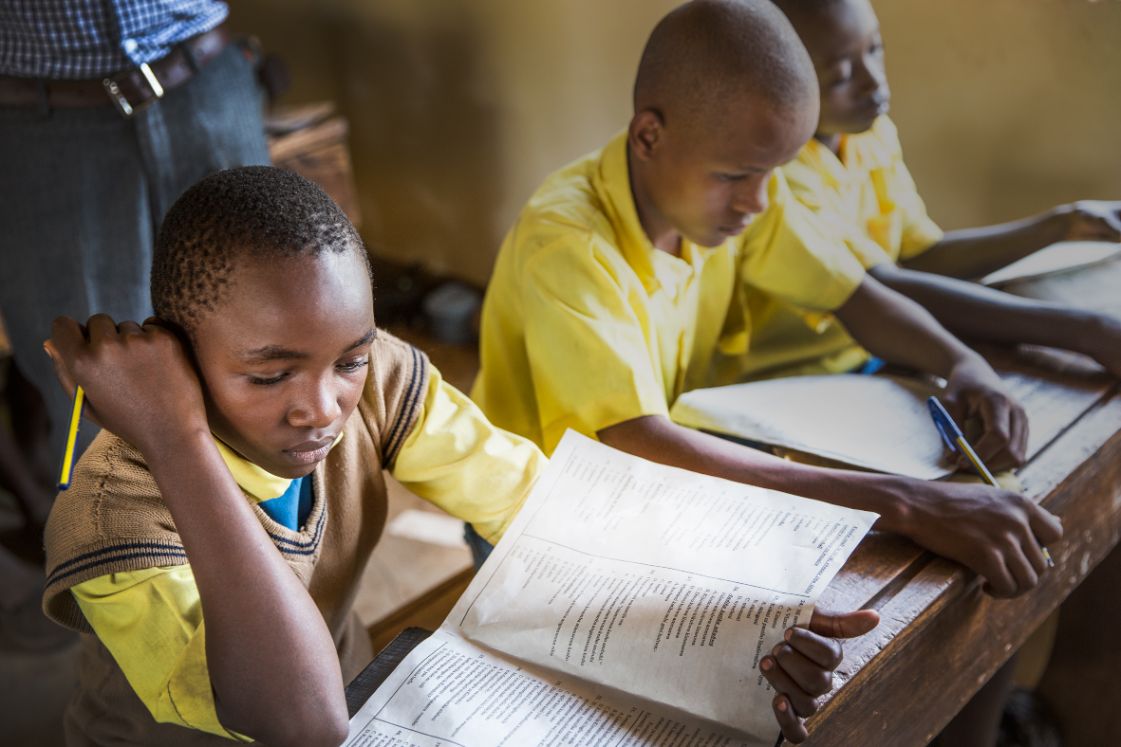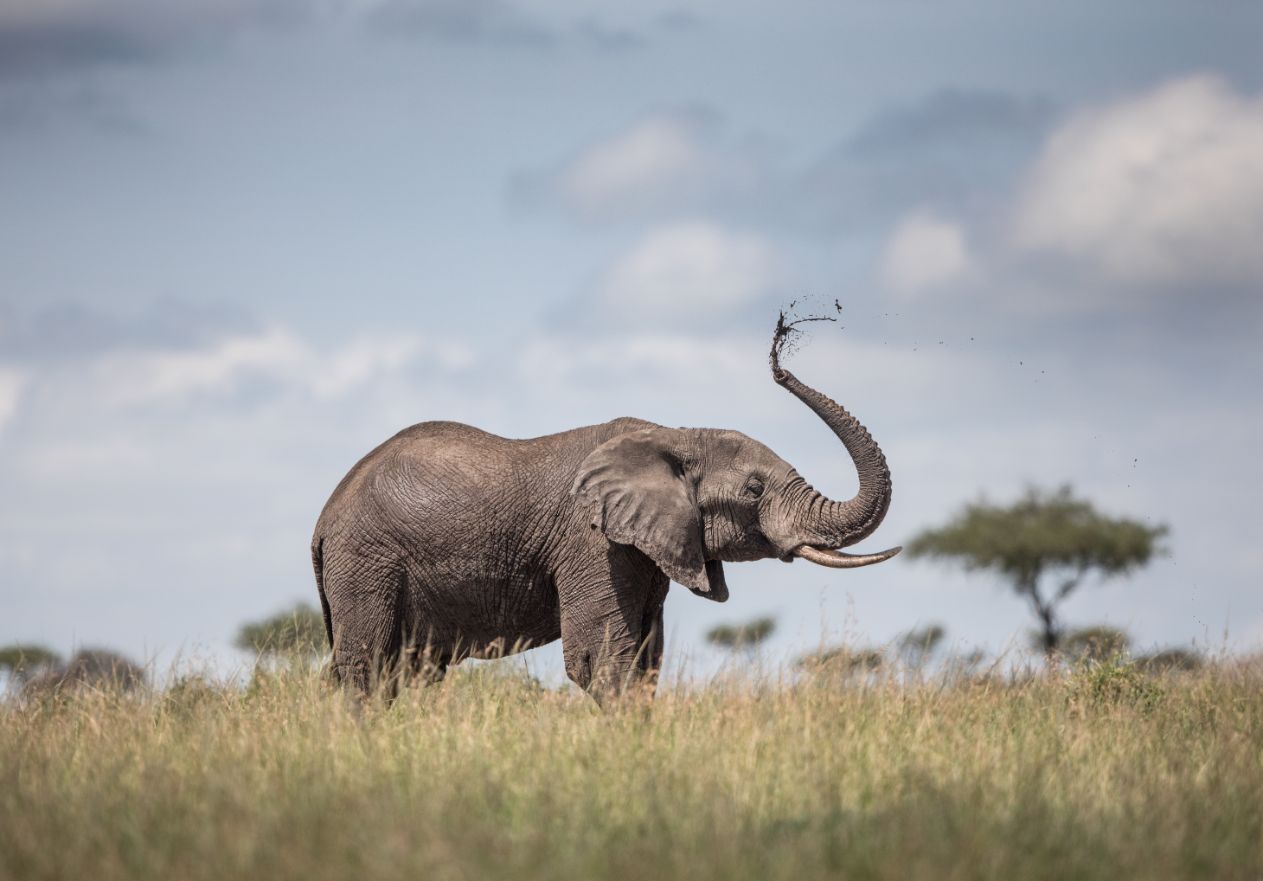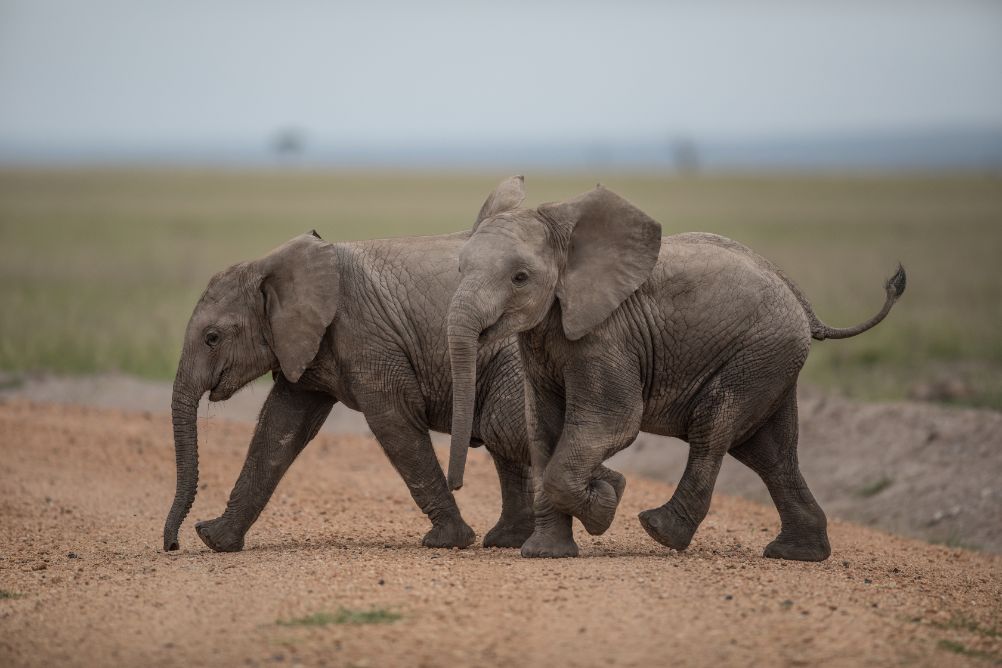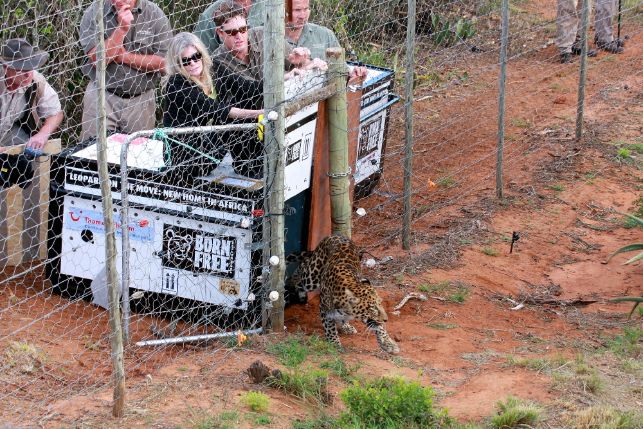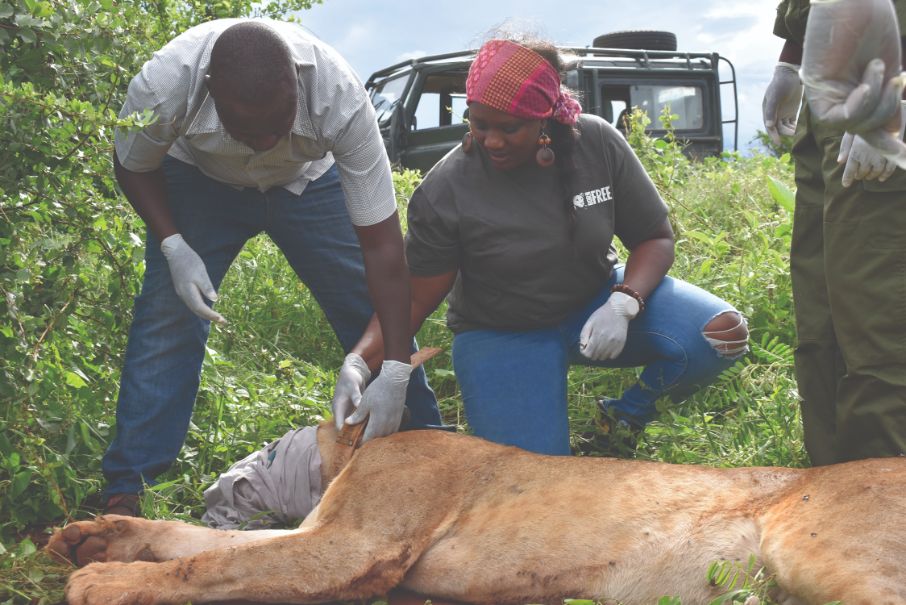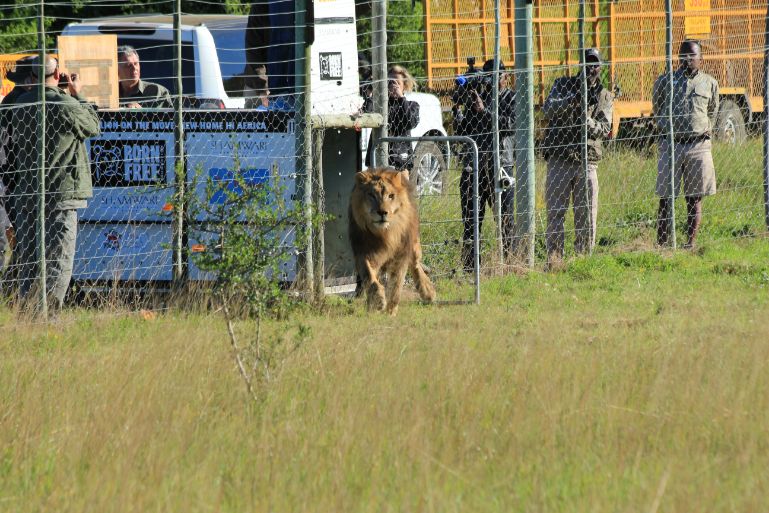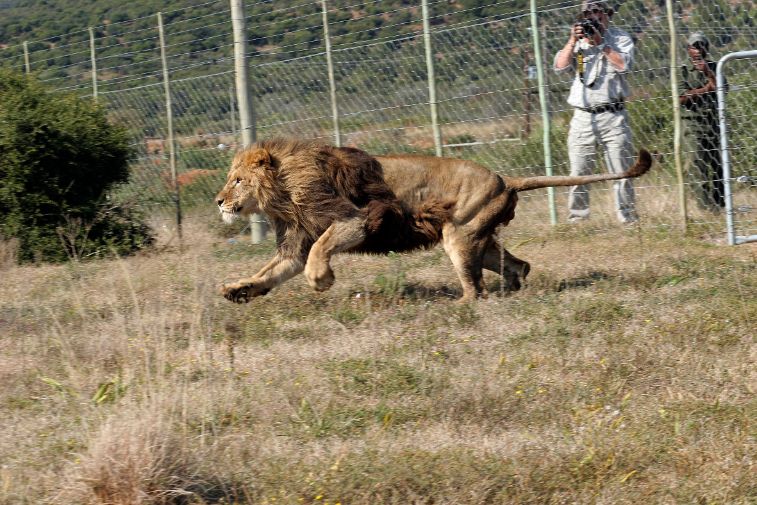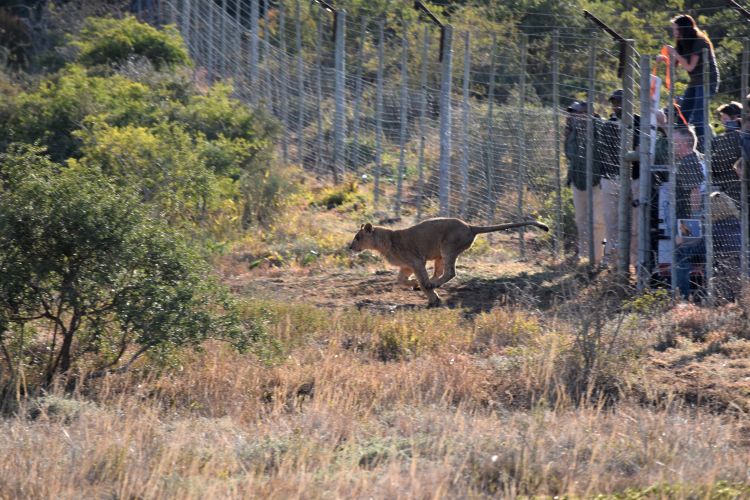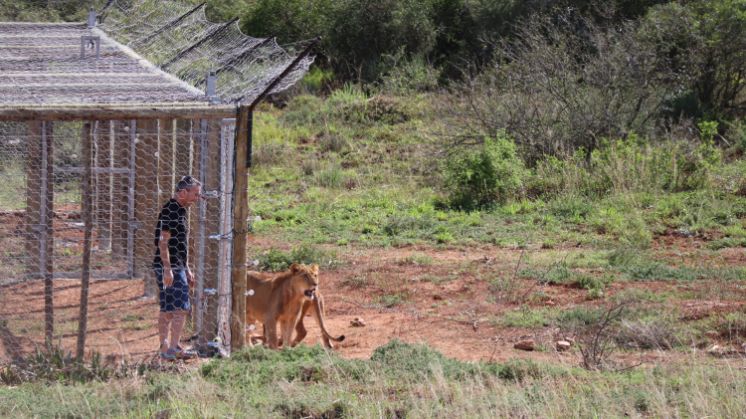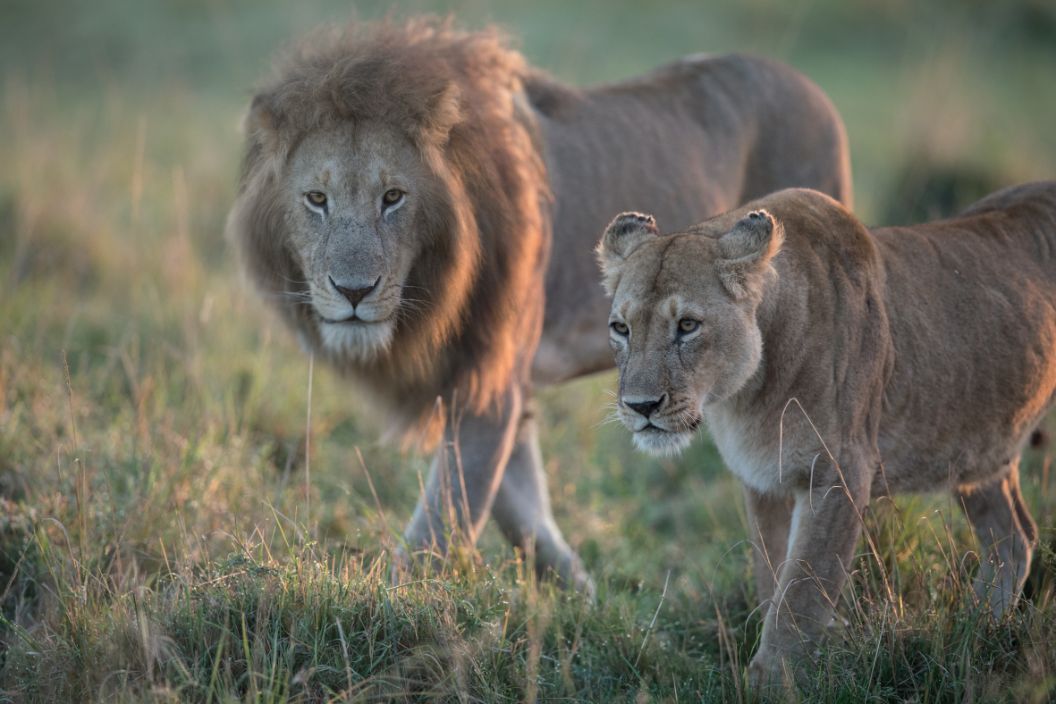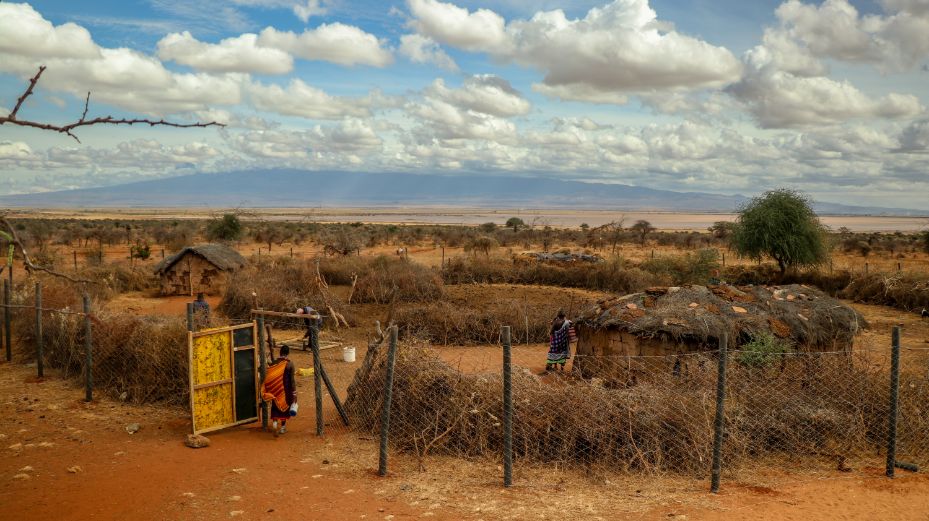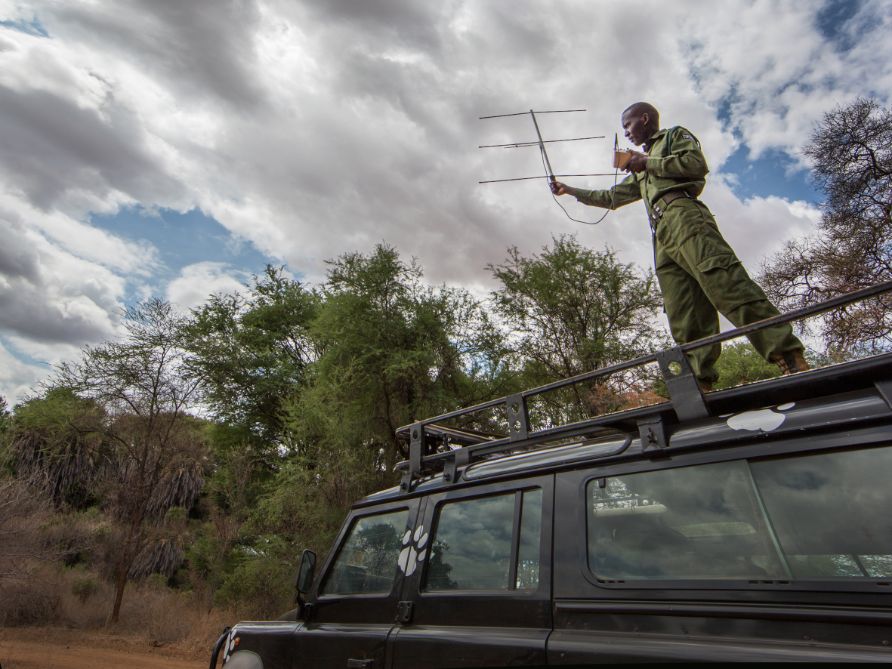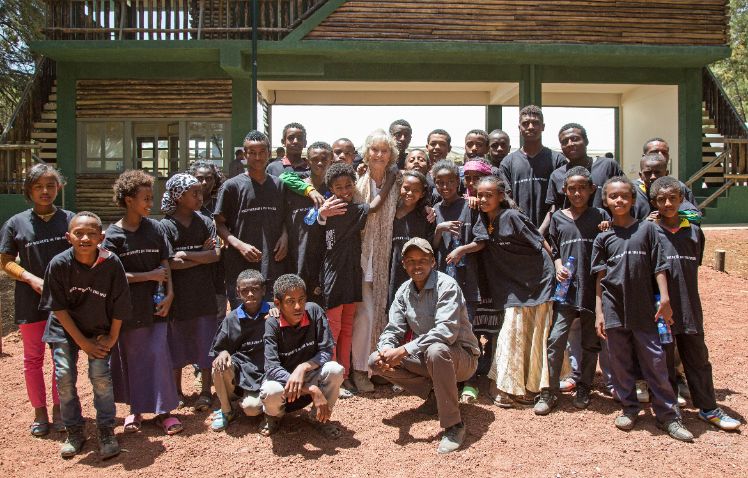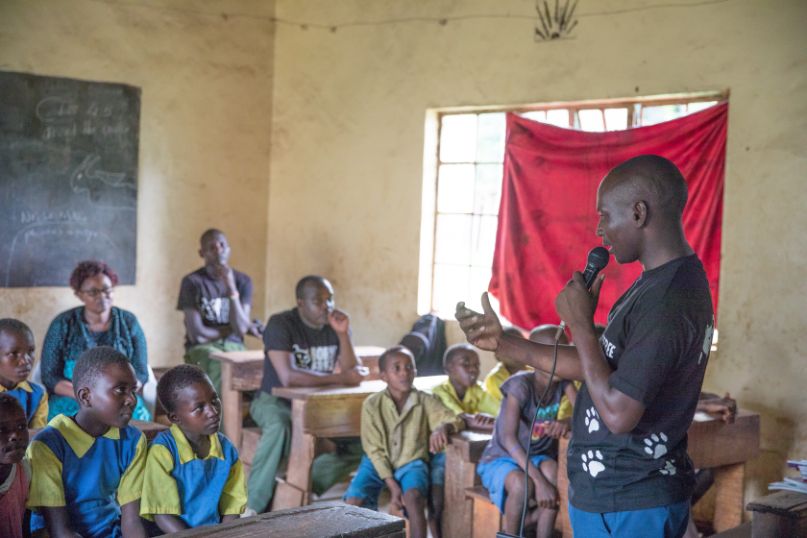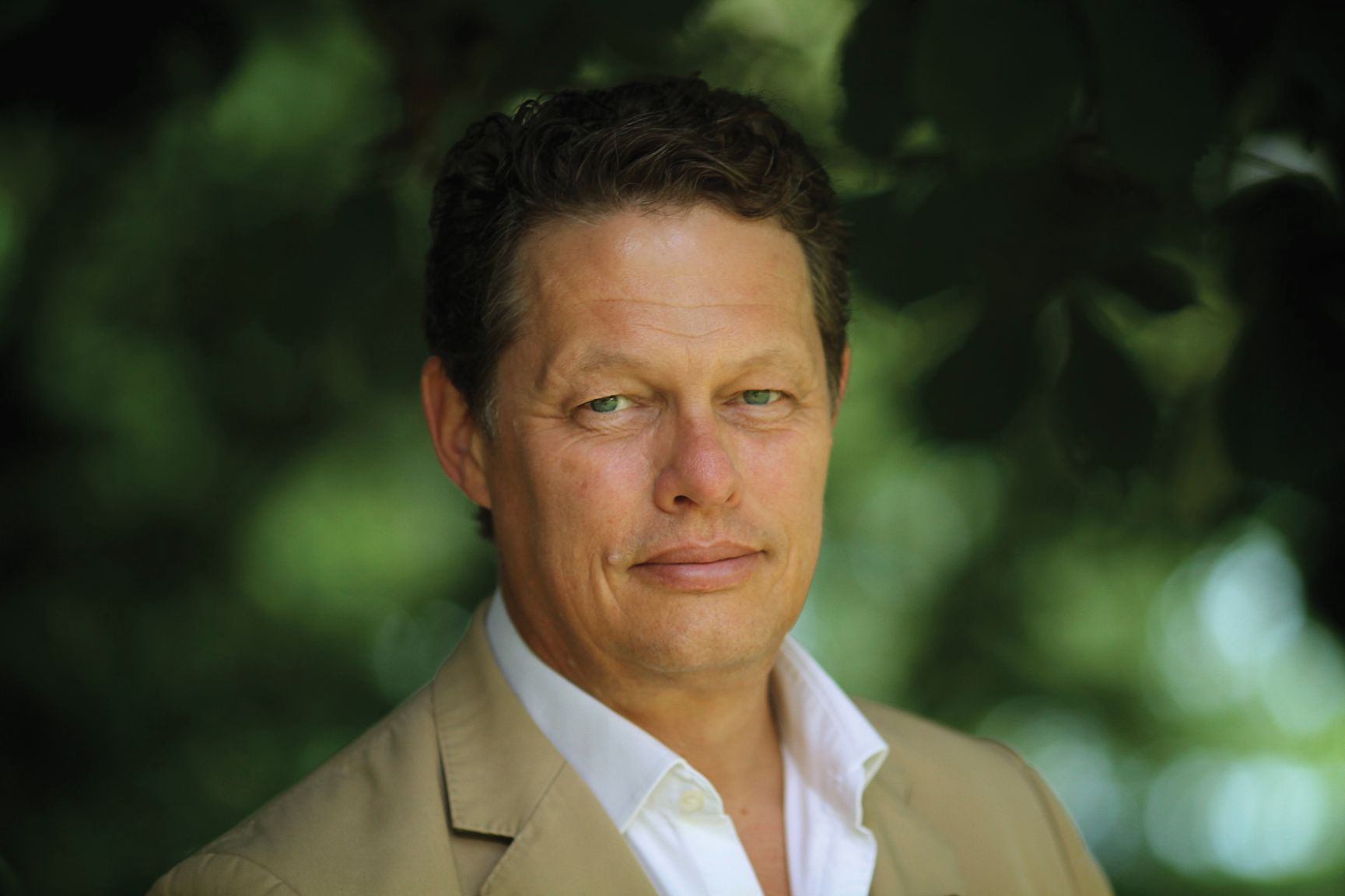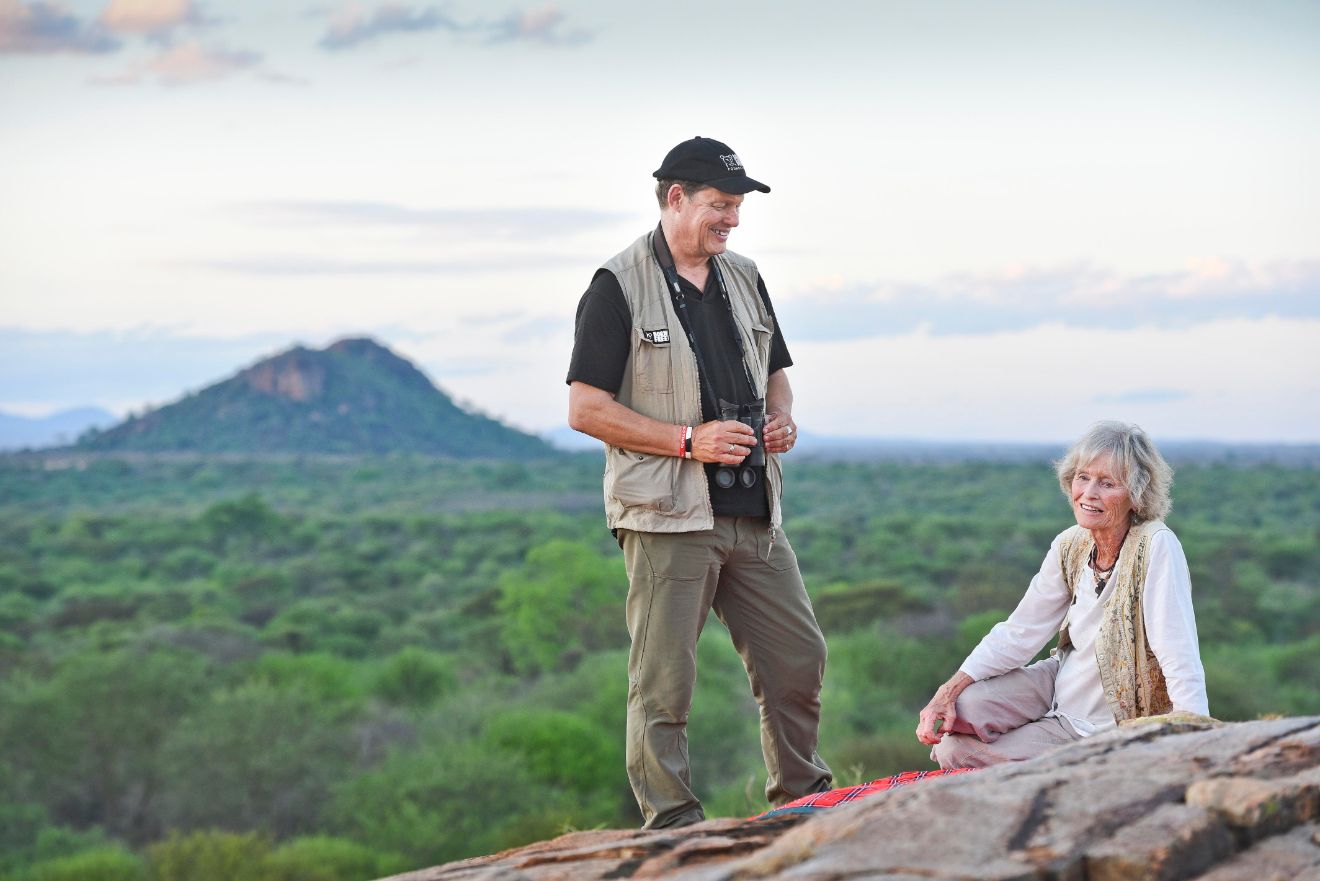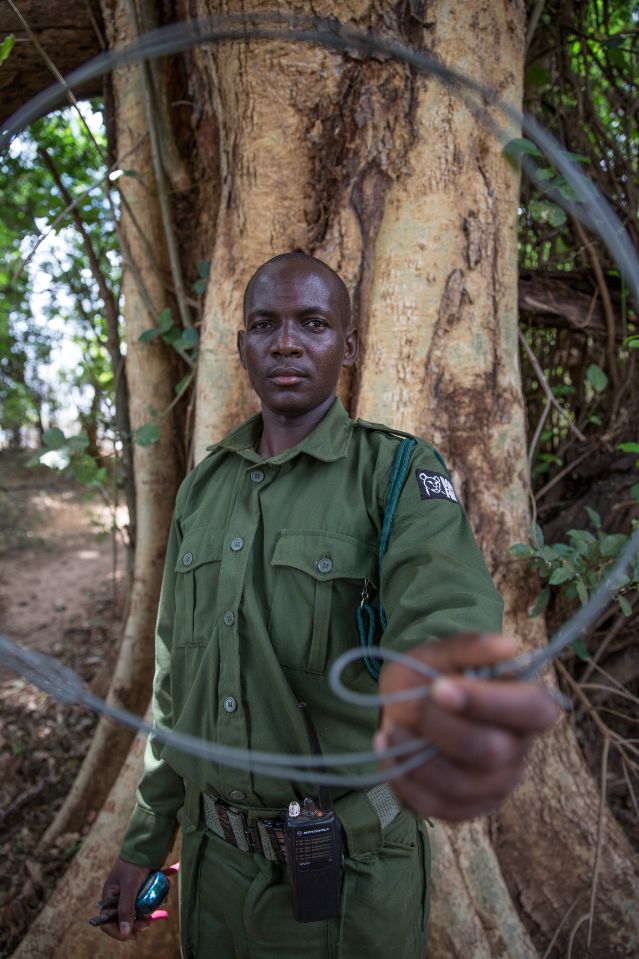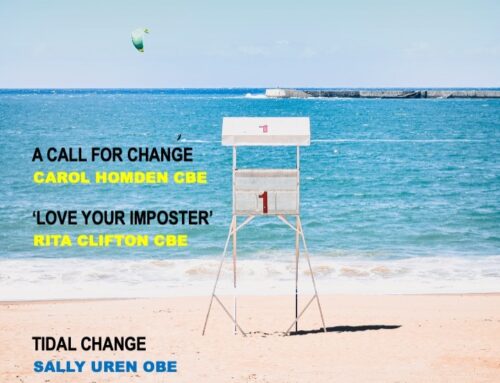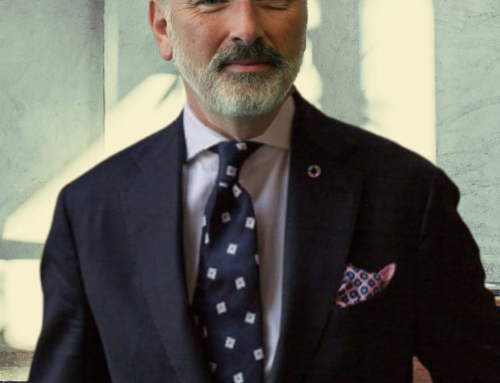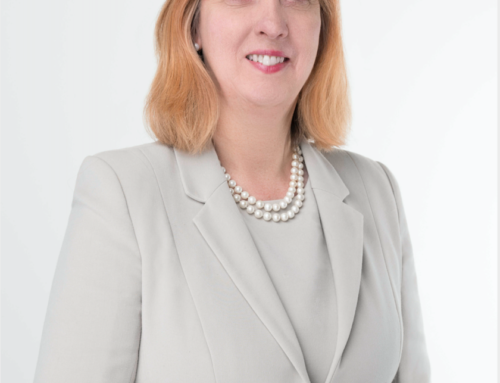Will Travers OBE
In Search of Freedom
There are few things in life more precious that freedom.
After all, short of execution, what is it that we do to those who have committed a crime? We take away their freedom. The worse the crime, the longer the sentence.
At the Born Free Foundation, the charity I helped establish with my parents, Virginia McKenna and Bill Travers, the actors in the film Born Free (1966), we have railed against the enforced incarceration of wild animals in captivity for our so-called entertainment for more than three decades.
When considering circuses it is easy to strip away the mask and reveal them for what they are. The tawdry exploitation of wild animals, set against the razzle dazzle, the glitz and the glamour of the Big Top.
Behind the illusion of the much vaunted ‘greatest show on earth’, the reality is hard and often nasty and mean. Wild animals traipsed around the country from venue to shabby venue; hours in the training ring; even longer hours in the beast wagon; and then a few moments puffing up the ego of the ringmaster or the trainer where the crack of the whip and spit and snarl of the animals (as they balance on tub or jump through hoops of fire) adds of momentary frisson of excitement to an otherwise dull and meaningless life.
The zoo, on the other hand is harder to expose. Layers of justification wrap themselves around self-important institutions that started in Roman times and, in some respects have not aged well.
Zoos are here for conservation, I hear you say. But how many species have been bred successfully in zoos and returned to the wild? Where is the elusive ‘conservation dividend’? And how do the millions spent on captive breeding help perpetuate the survival of species as part of natural, evolving, functional ecosystems? Their record is, all too often, miserable.
But then surely there is the education that zoos deliver. Well, with the best will in the world, the jury is out on that one. Studies have shown that people are barely better informed about the natural world after visiting the zoo than they were before entering. Kids can learn far more about wild species and wild habitats watch
David Attenborough than they can in an afternoon oscillating between one meagre enclosure and another.
But surely zoos generate huge resources to help protect wildlife in its natural environments? That’s not what the research suggests. While a new elephant enclosure covering a few acres and containing a tiny number of often un-related individuals (a pseudo herd) may cost twenty, thirty, forty million pounds, elephant conservation practitioners in the wild cry out for even a fraction of those resources.
Bluntly, the multi-billion pound zoo world promises much but delivers very, very little.
So why talk about this now – when COVID 19 is sweeping the world?
As we sit at home, following government instructions, or self-isolating entirely to help protect our loved ones and ourselves, and reduce the pressure on our over-stretched health services, we may start to see the world differently. Lockdown has real meaning.
We are, in some respects, experiencing what life with enforced limited choice feels like. We can no longer go out when we want to. See our friends when we want to. Join our families for familiar celebrations. Birthdays, weddings, anniversaries are on hold. Only funerals may go ahead.
We are experiencing the world in a virtual way. Through our televisions, our radios, on tablets or smartphones. The Skype call has replaced the cup of coffee with friends. Deliveries are conducted at a distance. People don’t sign for stuff. They just wave a fleeting ‘thank you’.
All for good reason. It must be done. Live and livelihoods are at stake and anything we, individually, can do to ease the burden on our health service champions – the doctors, nurses, drivers, orderlies, cleaners, administrators – whose job it is to treat us and make us well, anything we can do surely must be done.
But maybe, as we adjust to this life in a time of Coronavirus, this is an opportunity to pause and think. What might we do differently in future? What might we change? How could we be more caring and kind to our fellow travellers? How could we look after our singular planet that bit better and roll back the seeming inevitability of self-destruction we seem so intent on – and which CV may just be the harbinger.
Maybe we will think about the value of freedom a little more. What is means to lose what we so casually take for granted.
And maybe we can spare a thought for those non-human species, each with feelings, emotions and desires and, I would say, hopes and fears whom we lock up and deprive of their freedom simply to satisfy our curiosity and for ‘fun’.
Will Travers OBE
Executive President, The Born Free Foundation
@willtravers
http://www.bornfree.org.uk
Will Travers OBE
In Search of Freedom
There are few things in life more precious that freedom.
After all, short of execution, what is it that we do to those who have committed a crime? We take away their freedom. The worse the crime, the longer the sentence.
At the Born Free Foundation, the charity I helped establish with my parents, Virginia McKenna and Bill Travers, the actors in the film Born Free (1966), we have railed against the enforced incarceration of wild animals in captivity for our so-called entertainment for more than three decades.
When considering circuses it is easy to strip away the mask and reveal them for what they are. The tawdry exploitation of wild animals, set against the razzle dazzle, the glitz and the glamour of the Big Top.
Behind the illusion of the much vaunted ‘greatest show on earth’, the reality is hard and often nasty and mean. Wild animals traipsed around the country from venue to shabby venue; hours in the training ring; even longer hours in the beast wagon; and then a few moments puffing up the ego of the ringmaster or the trainer where the crack of the whip and spit and snarl of the animals (as they balance on tub or jump through hoops of fire) adds of momentary frisson of excitement to an otherwise dull and meaningless life.
The zoo, on the other hand is harder to expose. Layers of justification wrap themselves around self-important institutions that started in Roman times and, in some respects have not aged well.
Zoos are here for conservation, I hear you say. But how many species have been bred successfully in zoos and returned to the wild? Where is the elusive ‘conservation dividend’? And how do the millions spent on captive breeding help perpetuate the survival of species as part of natural, evolving, functional ecosystems? Their record is, all too often, miserable.
But then surely there is the education that zoos deliver. Well, with the best will in the world, the jury is out on that one. Studies have shown that people are barely better informed about the natural world after visiting the zoo than they were before entering. Kids can learn far more about wild species and wild habitats watch
David Attenborough than they can in an afternoon oscillating between one meagre enclosure and another.
But surely zoos generate huge resources to help protect wildlife in its natural environments? That’s not what the research suggests. While a new elephant enclosure covering a few acres and containing a tiny number of often un-related individuals (a pseudo herd) may cost twenty, thirty, forty million pounds, elephant conservation practitioners in the wild cry out for even a fraction of those resources.
Bluntly, the multi-billion pound zoo world promises much but delivers very, very little.
So why talk about this now – when COVID 19 is sweeping the world?
As we sit at home, following government instructions, or self-isolating entirely to help protect our loved ones and ourselves, and reduce the pressure on our over-stretched health services, we may start to see the world differently. Lockdown has real meaning.
We are, in some respects, experiencing what life with enforced limited choice feels like. We can no longer go out when we want to. See our friends when we want to. Join our families for familiar celebrations. Birthdays, weddings, anniversaries are on hold. Only funerals may go ahead.
We are experiencing the world in a virtual way. Through our televisions, our radios, on tablets or smartphones. The Skype call has replaced the cup of coffee with friends. Deliveries are conducted at a distance. People don’t sign for stuff. They just wave a fleeting ‘thank you’.
All for good reason. It must be done. Live and livelihoods are at stake and anything we, individually, can do to ease the burden on our health service champions – the doctors, nurses, drivers, orderlies, cleaners, administrators – whose job it is to treat us and make us well, anything we can do surely must be done.
But maybe, as we adjust to this life in a time of Coronavirus, this is an opportunity to pause and think. What might we do differently in future? What might we change? How could we be more caring and kind to our fellow travellers? How could we look after our singular planet that bit better and roll back the seeming inevitability of self-destruction we seem so intent on – and which CV may just be the harbinger.
Maybe we will think about the value of freedom a little more. What is means to lose what we so casually take for granted.
And maybe we can spare a thought for those non-human species, each with feelings, emotions and desires and, I would say, hopes and fears whom we lock up and deprive of their freedom simply to satisfy our curiosity and for ‘fun’.
Will Travers OBE
Executive President, The Born Free Foundation
@willtravers
http://www.bornfree.org.uk

